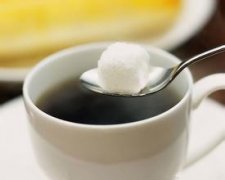Research says whether coffee is harmful to the human heart depends on genes

International online News: for a long time, people have been arguing about the effect of coffee on the human body. Some people say that drinking coffee regularly is good for the heart, while others hold the opposite view. Whether coffee is good or bad for the heart depends on the genetic condition of coffee drinkers, according to Canadian researchers.
According to the website of New Scientist magazine on March 7, a new study shows that among those who drink two to three cups of coffee a day, those who drink two to three cups of coffee a day have the same genetic makeup. But people who drink only one cup or less of coffee a day have a 36% increased risk of heart attack, according to a new study. If they drank more than four cups of coffee a day, their risk of heart attack increased by 64%.
Ahmed El-Sohemy, of the University of Toronto in Canada, who led the study, said: "our data show that the longer caffeine stays in the body, the more harmful it is."
On the other hand, people with faster caffeine metabolism, if they drank two to three cups of coffee a day, were 22 percent less likely to have a heart attack than those who had the same genetic makeup but drank only one or less cup of coffee a day.
Natural stimuli
Other recent studies have highlighted the positive and negative effects of drinking coffee. Earlier, a study of Dutch men and women showed that people who drank a lot of coffee were less likely to develop cardiovascular disease and type 2 diabetes.
Another study published in 2005 showed that people who regularly drank decaffeinated coffee had higher levels of some cholesterol in their blood than those who drank regular coffee.
However, people pay more attention to the potential negative effects of caffeine in coffee on human health. The new findings support the theory that caffeine, a natural stimulant, blocks the action of a hormone called adenosine, which narrows blood vessels. The function of adenosine is to keep the blood vessels open.
A genetic variation
In the late 1990s, researchers found that humans carried a mutated gene for an enzyme that could break down caffeine in the body. People who carry two copies of the CYP1A2*1A gene break down caffeine four times faster than those who carry the CYP1A2*1F gene, El-Sohemi said.
El-Soheimi and his colleagues conducted a DNA analysis of more than 2000 patients with heart disease and the same number of healthy people corresponding to age, sex and living area. Their study showed that people with the CYP1A2*1F gene who drank two to three cups of coffee a day increased their risk of heart attack by 36 per cent, while those who drank four or more cups a day increased their risk of heart attack by 64 per cent. Increased levels of caffeine in the blood block the effect of adenosine, leading to vasoconstriction, which can eventually lead to a heart attack. About 55% of people in the study carried genes that slow caffeine metabolism, El-Sohemi said.
For those who carried the homotype-bound CYP1A2*1A gene, or two copies of fast-metabolized caffeine, drinking coffee reduced their risk of heart attack. The study showed that among the volunteers who took part in the study, drinking two to three cups of coffee a day reduced their risk of heart attack by 22 percent.
This is the first time scientists have conducted a systematic analysis of how genes affect the role of coffee in the risk of heart attack, the report said. El-Soheimi stressed that although few people know whether they carry the CYP1A2*1F gene, drinking only one cup of coffee a day has no negative effect on the body.
Important Notice :
前街咖啡 FrontStreet Coffee has moved to new addredd:
FrontStreet Coffee Address: 315,Donghua East Road,GuangZhou
Tel:020 38364473
- Prev

Four benefits of drinking coffee to improve mental thinking
If you don't drink a few mouthfuls of coffee every day, you feel exhausted? But are you worried that drinking too much coffee is harmful to your health? It's just that when you want to complain about the disadvantages of drinking coffee, Vanderbilt University in the United States has set up a special coffee research center to actively explore this natural substance, which has been deeply misunderstood for a long time, and apply it to help fight cancer and love.
- Next

40% of people rely on coffee to cheer up the basic knowledge of fine coffee.
Drinking coffee seems to have become a normal life for modern people. A recent survey conducted by the Life Times and Sina Health Channel showed that more than 40 percent of the 1821 people surveyed relied on drinking coffee to refresh themselves every day. In the survey, 29% of the people chose to drink in leisure, 25.2% in the afternoon at work, 23.4% in the morning, and 22.4% in the morning.
Related
- Beginners will see the "Coffee pull flower" guide!
- What is the difference between ice blog purified milk and ordinary milk coffee?
- Why is the Philippines the largest producer of crops in Liberia?
- For coffee extraction, should the fine powder be retained?
- How does extracted espresso fill pressed powder? How much strength does it take to press the powder?
- How to make jasmine cold extract coffee? Is the jasmine + latte good?
- Will this little toy really make the coffee taste better? How does Lily Drip affect coffee extraction?
- Will the action of slapping the filter cup also affect coffee extraction?
- What's the difference between powder-to-water ratio and powder-to-liquid ratio?
- What is the Ethiopian local species? What does it have to do with Heirloom native species?

